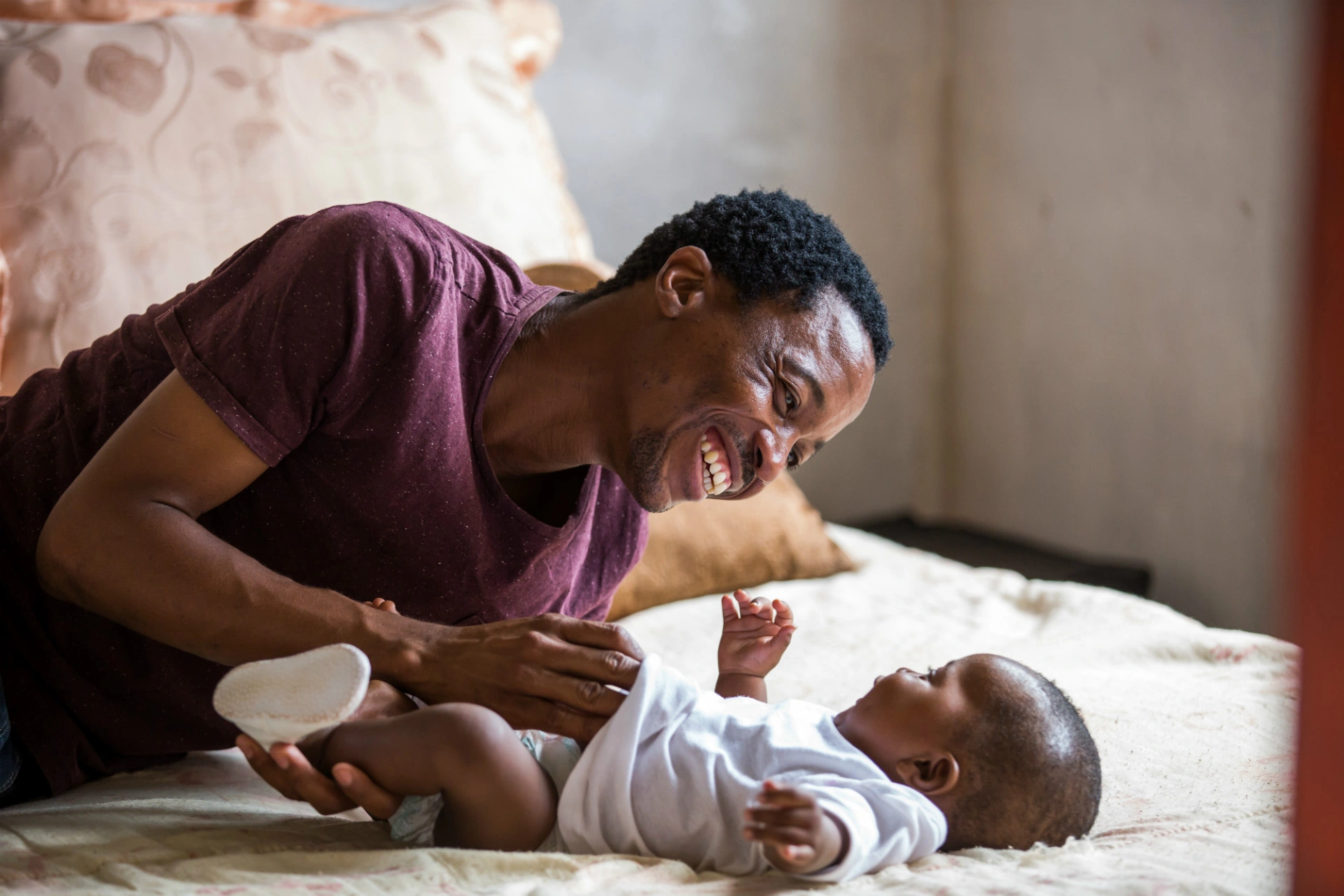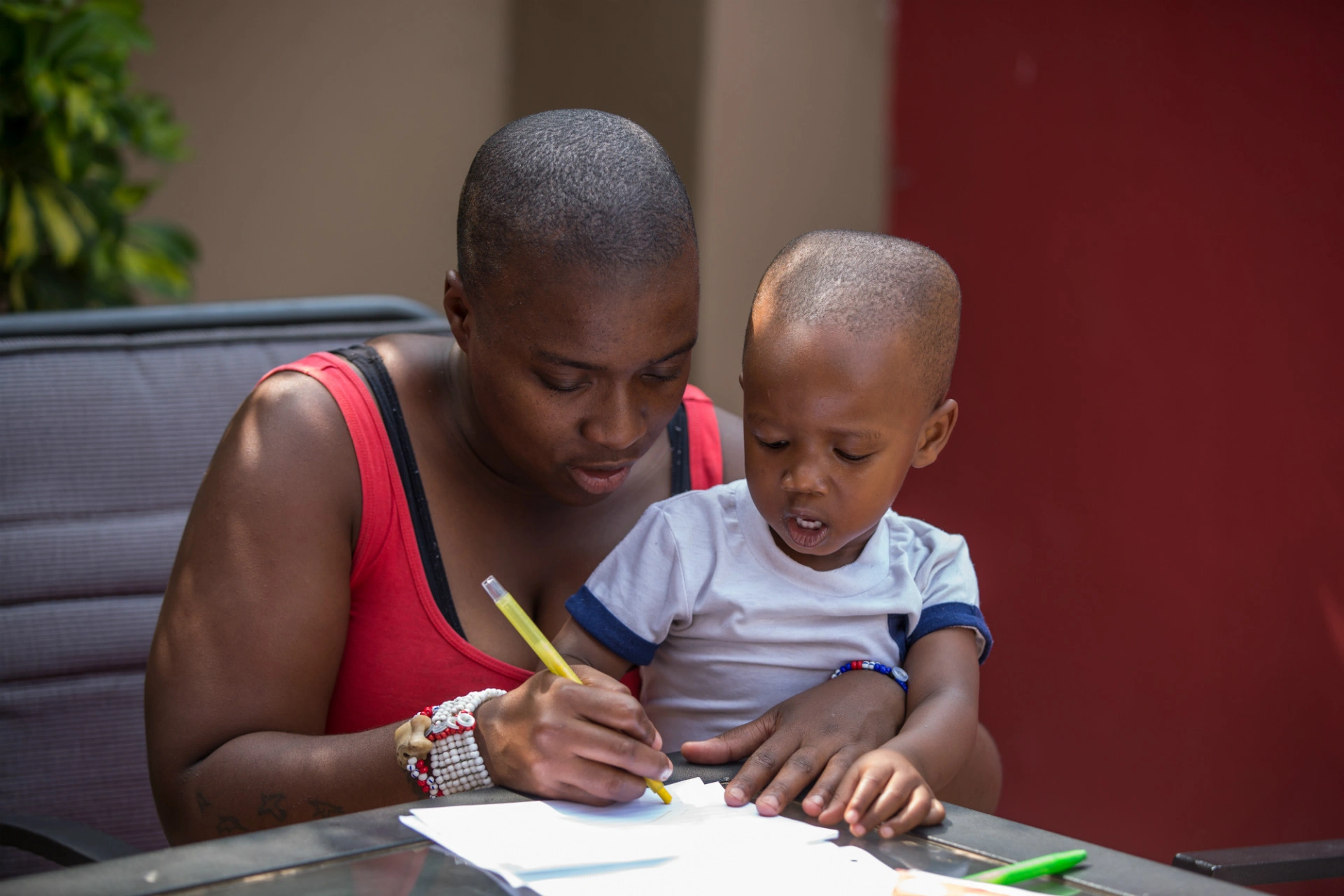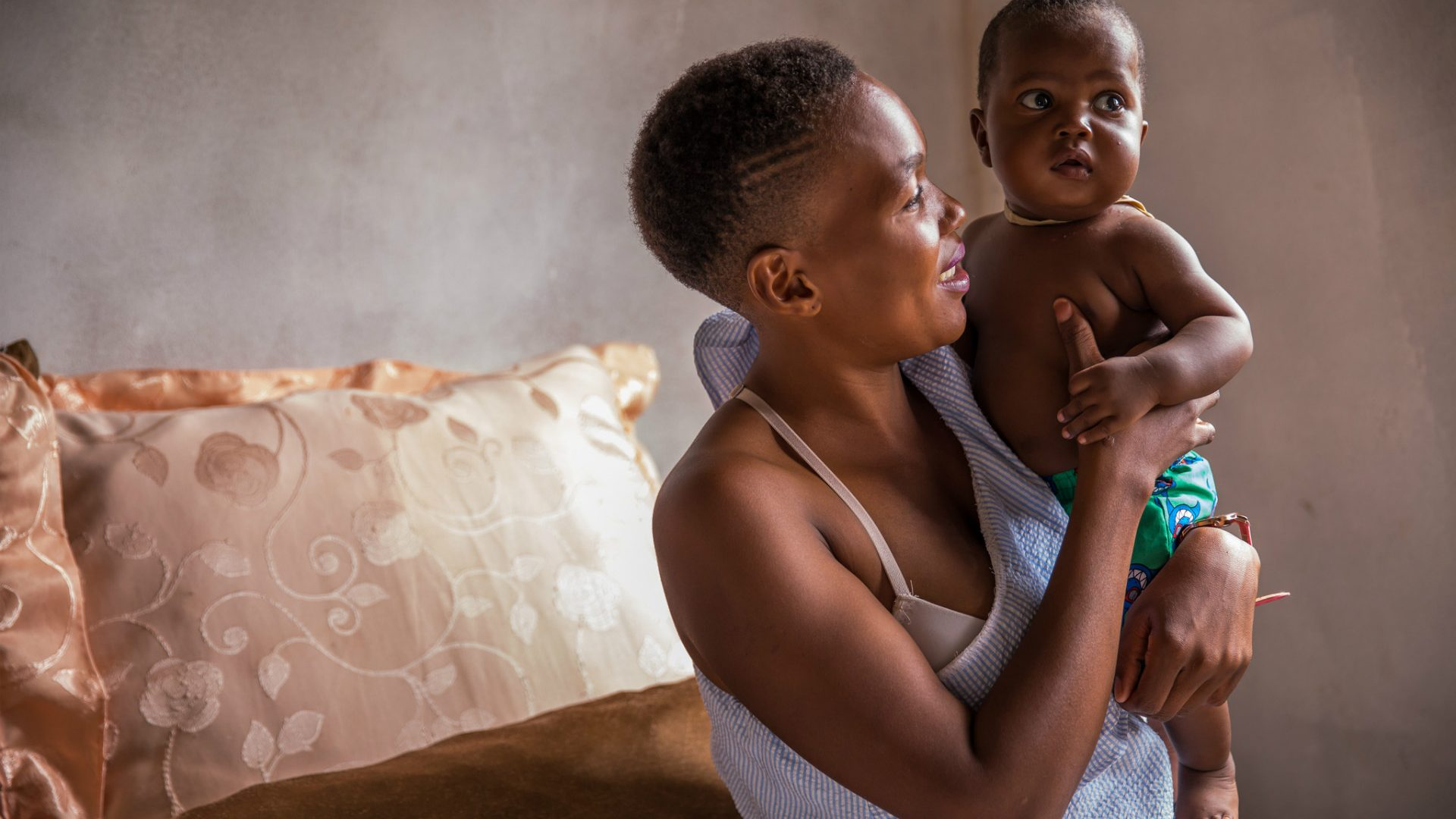Pregnancy and early parenthood can be overwhelming, especially when it’s your first child.
There’s a huge amount to absorb, an influx of unsolicited advice, and often, a large number of brands vying to sell you services.
For Hlengiwe, mother to two-year-old Alwando in South Africa, it’s hard to know who to trust.
“You know sometimes being a first time mother, you feel that getting information from this person and that person, it becomes too much and you don’t even know what to believe anymore,” she says.
“It’s a challenge, and is also scary because you don’t even know whether what you’re doing is right, you know? You never know what is right and what is wrong.”
It’s a problem faced by parents all over the world, but here the need for accurate and trustworthy information is not just important – it’s life-and-death.

Isaac Molalo and his son. Picture Credit: Vodafone
The information gap
According to UNICEF South Africa, 4,300 mothers lose their lives to complications during pregnancy and childbirth every year, while 20,000 babies never take their first breath, and 23,000 more never see their first birthday – or even their second month of life.
It can be hard to access official health information. And while there are eight nurses for every 1,000 people in the UK for example – like many developed nations – in South Africa it’s just 1.2 per 1,000.
The mobile revolution means many mothers have the world’s medical knowledge in their pockets.
That’s not the case everywhere however. There’s still a major gender gap in mobile use worldwide, especially in lower-income areas, with women on the losing side.
Lack of access has serious consequences for health and life expectancy, not just for women like Hlengiwe but their babies and children too.
There are free health services in South Africa, but they often depend on parents being able to physically get to a clinic. That’s not always possible in terms of time and money – especially for more rural and vulnerable populations.
Even when they can get to a health centre, families often encounter long queues, as well as shortages of staff, knowledge and communication.
While the situation might sound impossible, a text messaging initiative by Vodacom – Vodafone’s South African arm – is making a difference to some of the country’s most vulnerable parents, whether they have a mobile phone or not.

Hlengiwe Ximba, a Mum & Baby user and her son. Picture Credit: Vodafone
Progress by SMS
Called Mum & Baby, the service sends free health information by SMS three times a week, not only to mothers but also caregivers and partners. That means parents and pregnant women can benefit whether they have a phone of their own or not.
It’s not a generic text-blast to all, either. On signup, users give details about their age, location, and the parenting stage they need help with – from early pregnancy to caring for a five-year-old.
The messages they receive are personalised, to be relevant and useful, and they grow with the child – there’s not much use getting information about pregnancy when your baby is about to start school.
The service is available in five languages, with another three on the way. This helps ensure as many people as possible are included, particularly important when those who need the service most are likely to be in rural communities.
Alongside the text messages, there’s also a free mobile site that doesn’t incur data costs to Vodacom users.
It offers straightforward articles, videos and tutorials, and tools including an immunisation calendar, due date calculator and pregnancy medicine checker.
There’s educational material about related issues like nutrition, sexual health and HIV/AIDS, too – all subjects of vital importance to health in South Africa.
“It changed my life”
Isaac Molalo is a father to two young boys, but lost contact with the mother of his first baby.
He’s well aware of the cultural attitude that raising children is women’s work – and wants to be part of the change.
“We need to stop saying men are the head of the families and the women take care of the children alone. I don’t think men communicate enough about such matters,” he says.
“My communication with the mother of my first baby is not strong, which I’m not proud of.”
Determined to do better with his second child, Isaac signed up for Mum & Baby.
“I didn’t want the new baby to be part of the statistic. There was no way I was going to lose two children,” he says.
So did the texts help?
“It teaches you how to treat a pregnant woman, how to handle her hormones and the level of respect you should give her. You need to be patient with her,” says Isaac.
“I trust the information because it has changed my and my girlfriend’s life since we had a baby. We take time to listen to each other and talk about the baby.”
Immunisation
Just over a year after its inception, the Mum & Baby service has 1.2 million subscribers – and an almost equal split between mums, dads, partners and caregivers.
Like Isaac and Hlengiwe, they’re finding it makes a difference.
An independent study by KPMG commissioned by Vodafone reported that 96% of subscribers thought the texts were helpful, while 98% said they’d taken action to care for themselves or their child as a result.
Of the mothers and pregnant women surveyed 95% said that the information received influenced their decision to breastfeed.
While that’s impressive, the most important thing to come out of the Mum & Baby scheme is surely the difference it’s made to vaccination figures in South Africa.
The same study found 96% of those surveyed were convinced to get their child immunised by the service – which if it was replicated across Mum & Baby subscribers could mean more than 650,000 children got vaccinated because of some free text messages.
Sometimes, the simplest solutions are the best.























